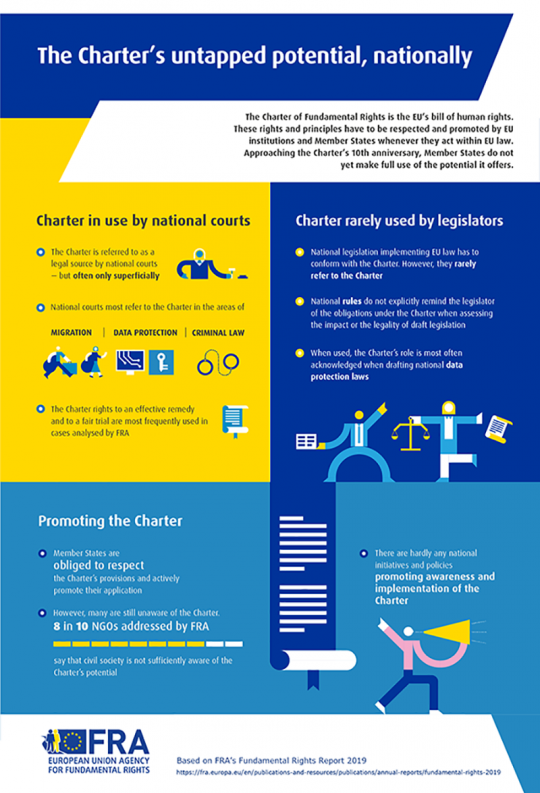Charter in use by national courts
- The Charter is referred to as a legal source by national courts -- but often only superficially
- National courts most refer to the Charter in the areas of migration, data protection and criminal law
- The Charter rights to an effective remedy and to a fair trial are most frequently used in cases analysed by FRA
Charter rarely used by legislators
- National legislation implementing EU law has to conform with the Charter. However, they rarely refer to the Charter
- National rules do not explicitly remind the legislator of the obligations under the Charter when assessing the impact or the legality of draft legislation
- When used, the Charter’s role is most often acknowledged when drafting national data protection laws
Promoting the Charter
- Member States are obliged to respect the Charter’s provisions and actively promote their application
- However, many are still unaware of the Charter. 8 in 10 NGOs addressed by FRA say that civil society is not sufficiently aware of the Charter’s potential
- There are hardly any national initiatives and policies promoting awareness and implementation of the Charter


